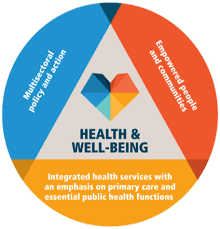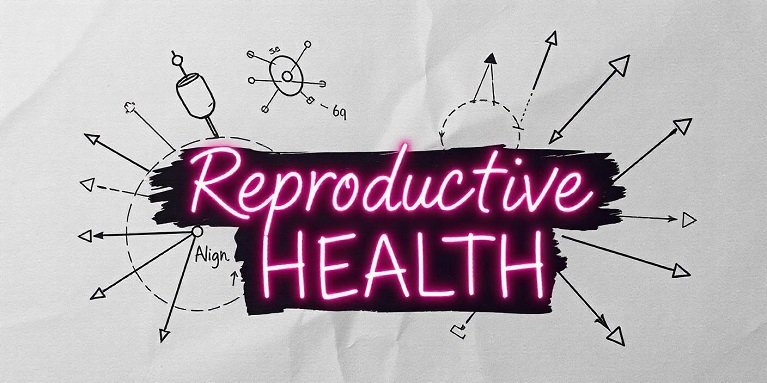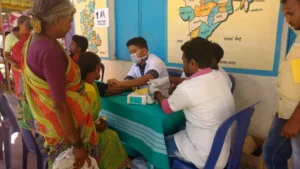Primary Health Care: The Foundation of a Healthy Society
Primary Health Care (PHC) is the first level of contact between individuals and the healthcare system. It provides essential medical services, promotes health, prevents diseases, and ensures that people receive the care they need. PHC is an important part of a strong healthcare system because it focuses on preventing health problems before they become serious.
This article will explain what primary health care is, its importance, key components, challenges, and how it can be improved to benefit communities worldwide.
Table of Contents
What is Primary Health Care?
Primary Health Care is a community-based healthcare approach that aims to provide basic health services to everyone. It includes:
- Disease prevention
- Health education
- Treatment of common illnesses
- Maternal and child healthcare
- Vaccinations
- Nutrition guidance
- Family planning
PHC is often delivered through local clinics, health centers, and general practitioners. It is the foundation of a country’s healthcare system and plays a crucial role in ensuring overall public health.
Importance of Primary Health Care
Primary Health Care is essential for the following reasons:
1. Provides Basic Medical Services
PHC ensures that people receive treatment for minor illnesses and injuries before they become serious. This reduces the burden on hospitals and specialized healthcare services.
2. Prevents Diseases
Preventive care, such as vaccinations, health education, and regular check-ups, helps in reducing the spread of diseases.
3. Improves Life Expectancy
Access to quality primary healthcare services helps people live longer and healthier lives.
4. Reduces Healthcare Costs
Treating diseases at an early stage is more cost-effective than treating serious conditions that require hospitalization or surgery.
5. Enhances Community Well-being
PHC promotes a healthier lifestyle through education on nutrition, hygiene, and physical activity.
6. Supports Mental Health
Mental health is a part of primary health care. Counseling and psychological support help people cope with stress, anxiety, and depression.
Key Components of Primary Health Care
The World Health Organization (WHO) has identified several important components of PHC:
1. Education on Health Problems and Prevention
People need to be aware of common diseases, how to prevent them, and when to seek medical help.
2. Proper Nutrition and Food Supply
A balanced diet is essential for good health. PHC provides guidance on proper nutrition to prevent malnutrition and lifestyle-related diseases.
3. Clean Water and Sanitation
Access to clean drinking water and proper sanitation prevents diseases such as diarrhea, cholera, and typhoid.
4. Maternal and Child Healthcare
Prenatal and postnatal care ensure the health of mothers and babies. PHC also provides vaccinations and education on child nutrition.
5. Immunization Against Major Diseases
Vaccination programs prevent deadly diseases like polio, measles, and hepatitis.
6. Treatment of Common Diseases and Injuries
PHC provides treatment for infections, minor injuries, and chronic diseases such as diabetes and hypertension.
7. Mental Health Support
Providing psychological support and counseling services is an essential part of PHC.
8. Family Planning and Reproductive Health
Access to contraceptives and reproductive health education helps families plan for healthy pregnancies.
Challenges in Primary Health Care
Despite its importance, PHC faces several challenges:
1. Shortage of Healthcare Workers
Many countries lack enough doctors, nurses, and trained health professionals to provide proper PHC services.
2. Limited Funding
Governments often do not allocate sufficient funds to PHC, leading to a lack of essential medicines and equipment.
3. Poor Infrastructure
In many rural areas, health centers lack basic facilities, making it difficult to provide quality healthcare.
4. Lack of Awareness
Many people do not understand the importance of preventive healthcare and only seek treatment when they are seriously ill.
5. Geographic Barriers
In remote areas, people have to travel long distances to reach healthcare centers.
6. High Disease Burden
Some regions face a high burden of infectious diseases, making it difficult for PHC to meet the demand for services.
How to Improve Primary Health Care
To make PHC more effective, governments and organizations need to take the following steps:
1. Increase Investment in Healthcare
Governments should allocate more funds to PHC to ensure the availability of medicines, equipment, and trained staff.
2. Train More Healthcare Workers
Providing training and incentives to doctors, nurses, and community health workers can improve the quality of PHC services.
3. Strengthen Health Infrastructure
Building well-equipped health centers in rural and underserved areas can improve access to PHC.
4. Promote Health Education
Raising awareness about disease prevention, hygiene, and healthy lifestyles can reduce the burden on healthcare systems.
5. Use Technology in Healthcare
Telemedicine and mobile health applications can help deliver healthcare services to remote areas.
6. Encourage Community Participation
Communities should be involved in health programs to ensure their needs are met.
7. Improve Access to Medicines
Essential medicines should be available and affordable for everyone.

Examples of Successful Primary Health Care Systems
Some countries have strong PHC systems that serve as models for others:
1. Cuba
Cuba has a well-developed PHC system with a focus on preventive care. Every citizen has access to a family doctor.
2. Canada
Canada’s healthcare system emphasizes primary care, and every resident has a primary care physician.
3. Thailand
Thailand has made significant progress in universal health coverage by strengthening its PHC system.
4. Sweden
Sweden invests heavily in primary healthcare and promotes health education to prevent diseases.
Conclusion
Primary Health Care is the backbone of a strong healthcare system. It provides essential health services, prevents diseases, and promotes overall well-being. However, many challenges, such as inadequate funding, shortage of healthcare workers, and poor infrastructure, limit its effectiveness.
To improve PHC, governments must invest in healthcare, train more professionals, strengthen infrastructure, and use technology to reach remote areas. When PHC is strong, people lead healthier lives, healthcare costs are reduced, and the overall well-being of society improves.
By prioritizing primary health care, we can build a healthier and more prosperous world for everyone.
Frequently Asked Questions (FAQs)
Q1: What is Primary Health Care? A: Primary Health Care (PHC) is the first level of healthcare that provides basic medical services, disease prevention, and health education.
Q2: Why is PHC important? A: PHC helps prevent diseases, reduces healthcare costs, improves life expectancy, and ensures access to essential health services.
Q3: What are the main components of PHC? A: PHC includes health education, nutrition, maternal care, immunization, treatment of common illnesses, and mental health support.
Q4: How can we improve PHC? A: Increasing funding, training healthcare workers, improving infrastructure, and using technology can strengthen PHC.
Q5: What are some challenges in PHC? A: Shortage of healthcare workers, poor funding, lack of awareness, and geographic barriers are common challenges.













